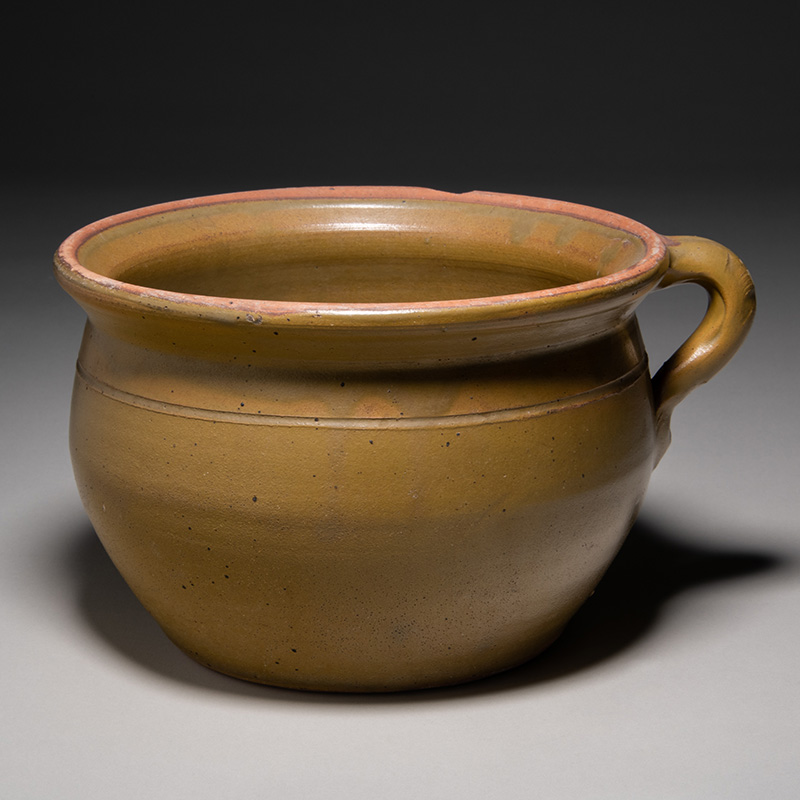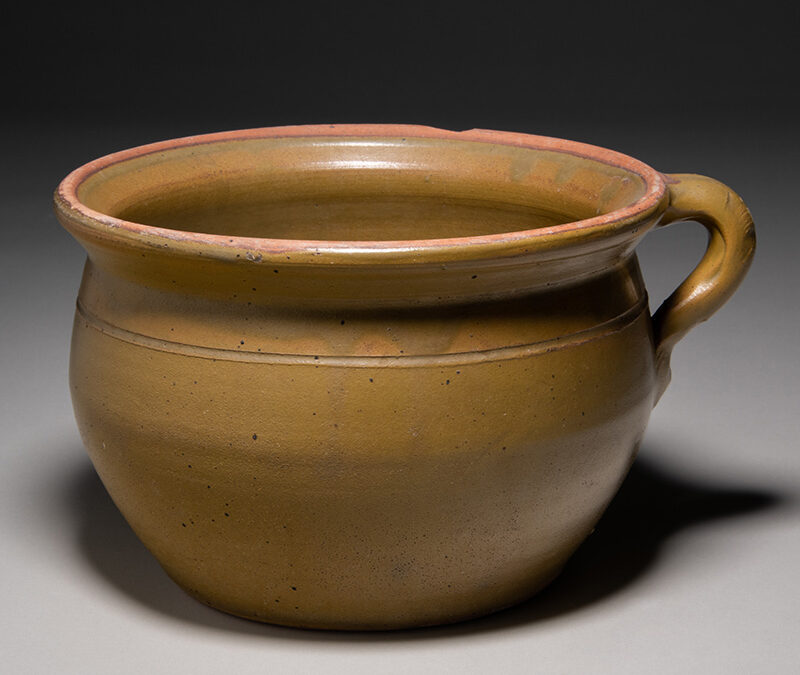
| Maker | Meyer Pottery Co. |
| Date of Creation | 1887–1920 |
| Location | Atascosa, Texas |
| Materials | Salt-glazed stoneware |
| Institution | San Antonio Museum of Art |
| Credit Line | San Antonio Museum of Art, purchased from Georgeanna Greer |
| Accession Number | 73.86.14 |
| Photo Credit | Photography by Ansen Seale |
The Meyer Pottery was founded in 1887 by Franz Schultz and his son-in-law William Meyer, German potters who immigrated to Texas in 1885. Both Schultz and Meyer had previously worked for the pottery of William Saenger, also a German immigrant, from 1885 to 1887. The Meyer venture was located in the Atascosa community of southwestern Bexar County, a region rich in clays and favored by a number of other pottery-making enterprises. Following the death of Schultz in 1889, the pottery passed to Meyer who expanded it into a thriving concern that continued operating until 1962. While the Atascosa area produced rich clays for the raw material of salt-glazed stoneware, special clays for slip glazes were brought from Albany, NY. After 1895, the pottery used a unique slip for a glaze made of clay from the Leon Creek area which allowed for many variations in color and finish, ranging from yellows and browns to mottled green. The pottery produced mainly utilitarian wares rather than decorative pieces. The majority of the work was done by hand, resulting in a relatively limited output. The firm’s clientele included not only the local San Antonio market but also ranged throughout the state of Texas.

